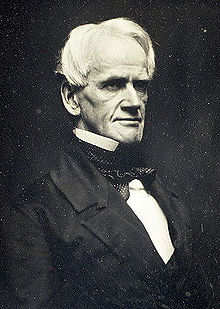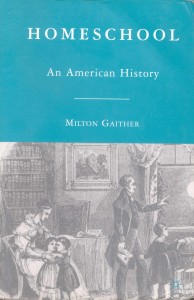 Suppose that the federal government decided to over-reach and do something illogical about the national epidemic of childhood obesity. Bear with me while I set up the scenario.
Suppose that the federal government decided to over-reach and do something illogical about the national epidemic of childhood obesity. Bear with me while I set up the scenario.
Because it’s “for the children,” the Department of Health announces a sweeping program to require a national, standardized breakfast menu. Frosted flakes, cocoa puffs, and honey nuts are all out. All children, under the age of 18 will be required to have a nutritious breakfast using only items from a federally mandated and approved list of foods. Muesli & granola are in. Fruit and yogurt are in. Everything else, not so much. And suppose further that the federal bureaucracy came up with some obnoxious and intrusive schemes to monitor and verify what all of our [ahem, excuse me, THEIR] little darlings were eating for breakfast.
There would of course, be a predictable outrage from parents (and probably teen-agers, if not toddlers). The federal government would be denounced for taking liberties with the constitution. There would be rallies denouncing the Common Breakfast Scheme. The idea of enlarging the federal government and allowing its intrusion into suburban kitchens would be anathema.
Of course, there would be those who saw opportunities. Some of the major breakfast cereal manufacturers might rush to re-design their cereals and packaging to announce that they were Common Breakfast compliant. Some big corporations might even see great advantage in having their products endorsed and approved, while their rivals’ products were banned. Big Breakfast Corporations might even publicly support the Common Breakfast Scheme.
 But ponder, for just a moment, the small local family run business who makes homemade granola. They’ve been careful with their ingredients. They have a loyal customer base. And they certainly have nothing to do with any big government initiative that wants to compel everyone to eat granola.
But ponder, for just a moment, the small local family run business who makes homemade granola. They’ve been careful with their ingredients. They have a loyal customer base. And they certainly have nothing to do with any big government initiative that wants to compel everyone to eat granola.
And suddenly, they find themselves denounced as either “supporting”, “accidentally aligned”, or “coincidentally aligned” with the Common Breakfast Scheme. Citizen activists from The Breakfast Freedom Coalition (which sprang up out of nowhere), take it upon themselves to compile lists of any and all companies who produce any product which is listed as approved by the Common Breakfast Scheme. Websites are started, activists are dispatched urging consumers to demand information about the local granola companies stance towards the Common Breakfast.
And through a network of self-appointed experts, small companies are told that their products are going to be boycotted because they are Common Breakfast Aligned. Indeed, at least one of the activists writes and publishes an opinion piece denouncing them as the equivalent of Tories during the American Revolution!
And all they really wanted to do was to continue making and selling the same homemade granola that they’d been making and selling for twenty years. They wanted nothing to do with the Common Breakfast list of approved foods. They certainly didn’t support a federal mandate telling people what they could and couldn’t feed to their children for breakfast.
 Math problem #1: How much time, energy, and goodwill would have been wasted by The Breakfast Freedom Coalition, tracking down all of the local granola companies in order to publicize which ones were making Common Breakfast aligned food before they came to their senses?
Math problem #1: How much time, energy, and goodwill would have been wasted by The Breakfast Freedom Coalition, tracking down all of the local granola companies in order to publicize which ones were making Common Breakfast aligned food before they came to their senses?
Math problem #2: How much impact would The Breakfast Freedom Coalition have on the implementation of the federal government’s Common Breakfast Scheme by targeting small granola companies?
But of course, this is simply a highly improbable thought experiment.
The federal government would never consider a scheme so poorly conceived and so universally intrusive (and so unconstitutional).
And there really aren’t any citizen activists so benighted as to think that the way to oppose the federal government would be to go after small homemade granola companies.
Are there?



